Migrant Route To Refugee Status: An Iraqi Family's Odyssey
In September 2015 as Europe confronts its worst refugee crisis since World War II, an AFP team meets a young Iraqi couple, who are among the one million people that year to arrive in Europe by sea.
AFP journalists travel with Ahmad and Alia -- at the time, aged 27 and 26, who asked that their surnames not be published for safety concerns -- on the so-called Balkans Route from September 3 to 9.
From Gevgelija on the Greek border of what is now called North Macedonia, they trek through Serbia, Hungary, Austria and into southern Germany together.
With their four-month-old baby, the couple arrives around a week later in the Netherlands -- their dream destination -- where they apply for asylum.
AFP stays in touch and meets up with them twice over the next five years.
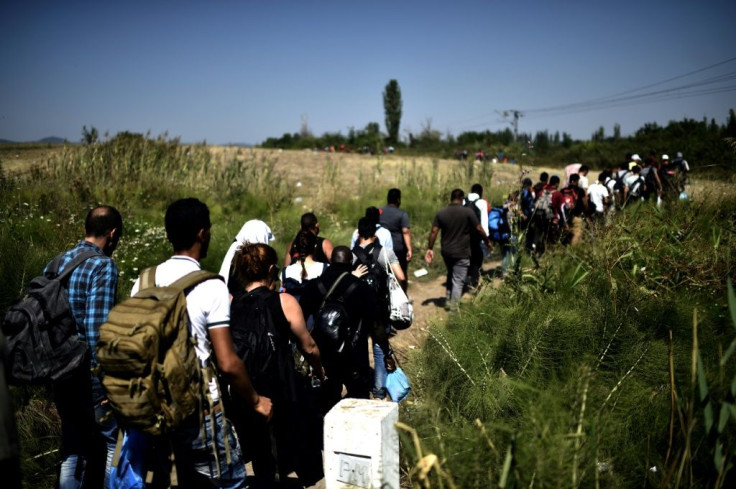
Here are the main turning points of their journey, from mass migratory wave to refugee status.
Gevgelija, Macedonia, September 3, 2015: Ahmad and Alia board a train headed towards the Serbian border, having left Iraq in early August, travelling through Turkey and then by boat to Greece.
The train is crammed with people desperate for a better life than they have left behind in Syria, Iraq, Afghanistan and beyond.
Among them are mothers with newborns, elderly people and war-wounded amputees.
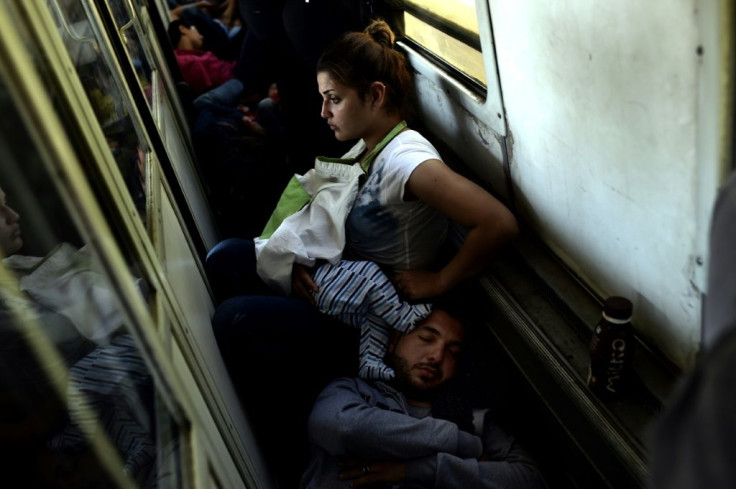
The couple has little option but to sit on the dusty floor where Alia discreetly breastfeeds baby Adam. While onboard, they meet the AFP team.
Arriving in Belgrade the next day, Ahmad has an internet connection for the first time in two days -- to his horror, he sees the photo of three-year-old Syrian boy Aylan Kurdi, who has drowned in the Mediterranean two days earlier.
Nearly 3,800 deaths at sea will be registered by the UNHCR in 2015.
In late summer, Chancellor Angela Merkel has opened Germany's borders to migrants.
Other EU members refuse or resist to take in refugees -- Hungary and Slovenia put up fences.
Here is the blog produced by the AFP team at the time:
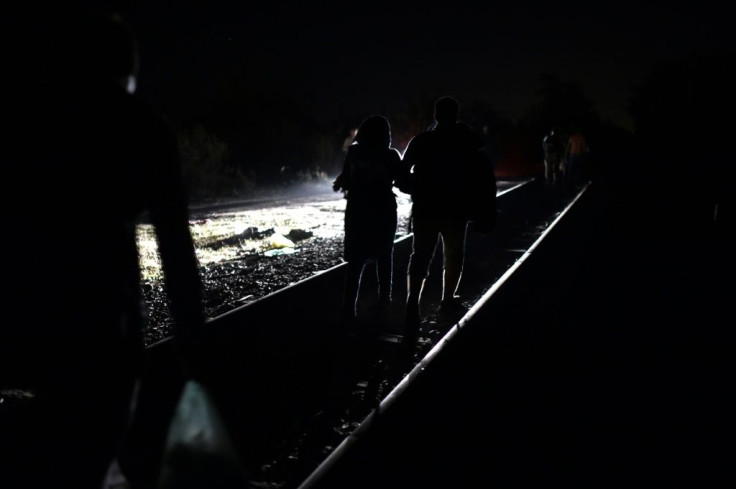
https://correspondent.afp.com/journey-unknown-balkan-migrant-route-1
Serbian-Hungarian border, September 5: Fellow Iraqi travellers want to reach Germany, Sweden and Finland, nations they believe will provide the safety and dignity their homeland could not.
Hungarian Prime Minister Viktor Orban's government erects razor wire border fences and enables police to physically "push back" migrants across the border into Serbia.
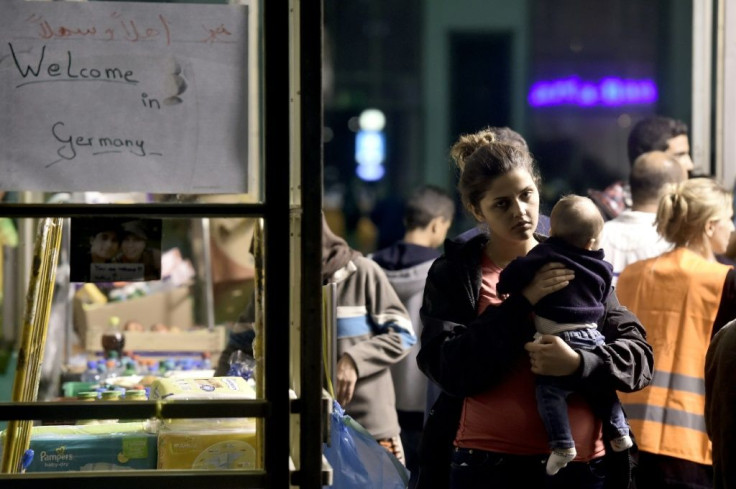
The only way for Ahmad and Alia to elude the authorities is to find a smuggler.
They and the other Iraqis slide down a stony pathway near the border into a plantation whose tall crops shield them from sight.
A smuggler appears, an Iraqi Kurd.
"This way," he smiles. "Don't make a sound."
Minutes later, four men emerge from the shadows in what look like police uniforms.
"Stop!" shouts one of them.
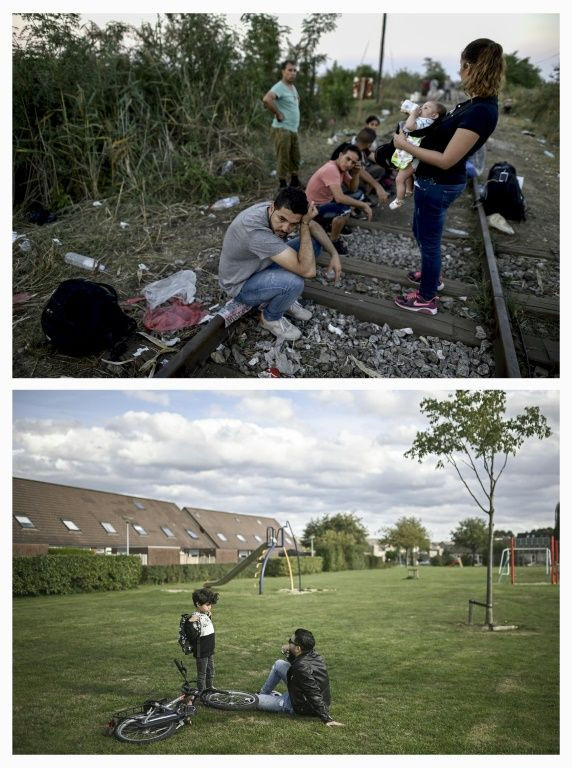
Alia weeps silently in fear as her husband carries their child.
It turns out that they aren't policemen. One of the Iraqi migrants urges the others to stand their ground, some of them brandish tree branches, and the four men eventually vanish.
"I think they were thieves," Ahmad says later.
While Greece, Macedonia and Serbia are pushing migrants on to the next country along the Balkan Route, Hungary detains them in border camps or pushes them back.
At the time, the AFP team wrote this blog:
https://correspondent.afp.com/journey-unknown-balkan-migrant-route-2
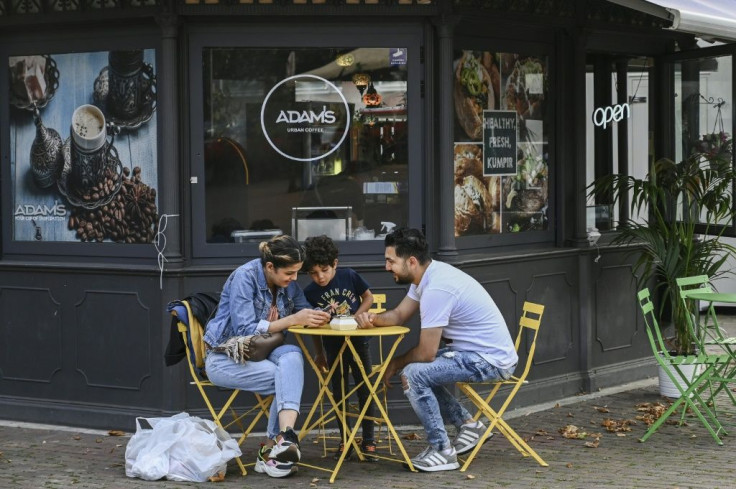
Vienna, September 7: They buy train tickets to Cologne in western Germany, where Ahmad's sister lives.
At the station in the Austrian capital, a poster that reads "Refugees welcome" sits on a table, together with fruit, toys and Arabic sweets.
Across the border in the southern German city of Munich where they were due to change trains, the welcome is colder.
Police cut their journey short, taking them to a migrant reception centre where they are expected to register and begin their asylum application.
But the family has other plans.
They contact relatives in the Netherlands, who drive over to get them.
Around a week later, they are in their dream country.
They apply for asylum and wait in a string of migrant shelters. In December that year, AFP catches up with them in one of the shelters, a former exhibition centre in the northern town of Leeuwarden.
Meantime, Germany reinstates border controls on September 13.
Heerhugowaard, the Netherlands, March 2016: While they live at a former women's prison-turned-migrant shelter, Ahmad is invited to outline their request for asylum to the Dutch authorities.
He explains that he was kidnapped by a militia for 10 days in 2006, fled to Syria and returned when the revolt there spiralled into war.
He also tells the interviewer about the explosion in Baghdad that he and Alia survived in 2014.
But the request is denied -- Ahmad's 2012 return from Syria is seen as evidence, he is told, that Iraq is a safe country for him.
They appeal, to no avail.
They reapply, but fail again.
"Our whole world went up in flames," Ahmad says.
For nearly a year, Ahmad and Alia live as undocumented migrants.
The EU and Turkey sign a deal in 2016 to stem the migrant influx.
Combined with the Balkan Route being closed, the flow drops sharply as Turkey boosts its coastal patrols.
Read here the AFP blog from the time:
https://correspondent.afp.com/node/3425
Nijmegen, the Netherlands, in 2019: Across Europe, the crisis fuels anti-migrant sentiment and boosts the popularity of far-right parties.
In a leap of faith, Alia files an asylum application under her name.
Unlike her husband, she never left Iraq, and had to quit high school after receiving threats over her refusal to wear the veil.
Her request is granted.
In August, she is informed of her new status, and within weeks all three have the right of residence.
Soon after, they are handed the keys to their two-bedroom house in the leafy town of Duiven.
"It took four years," Ahmad says. "But for Adam's sake, it was worth it."
Despite beefed-up patrols on the EU's external borders and a shrinking appetite for newcomers, people continue to seek asylum in Europe.
In 2019, 612,000 people filed asylum claims in the EU, according to Eurostat data.
© Copyright AFP {{Year}}. All rights reserved.




















